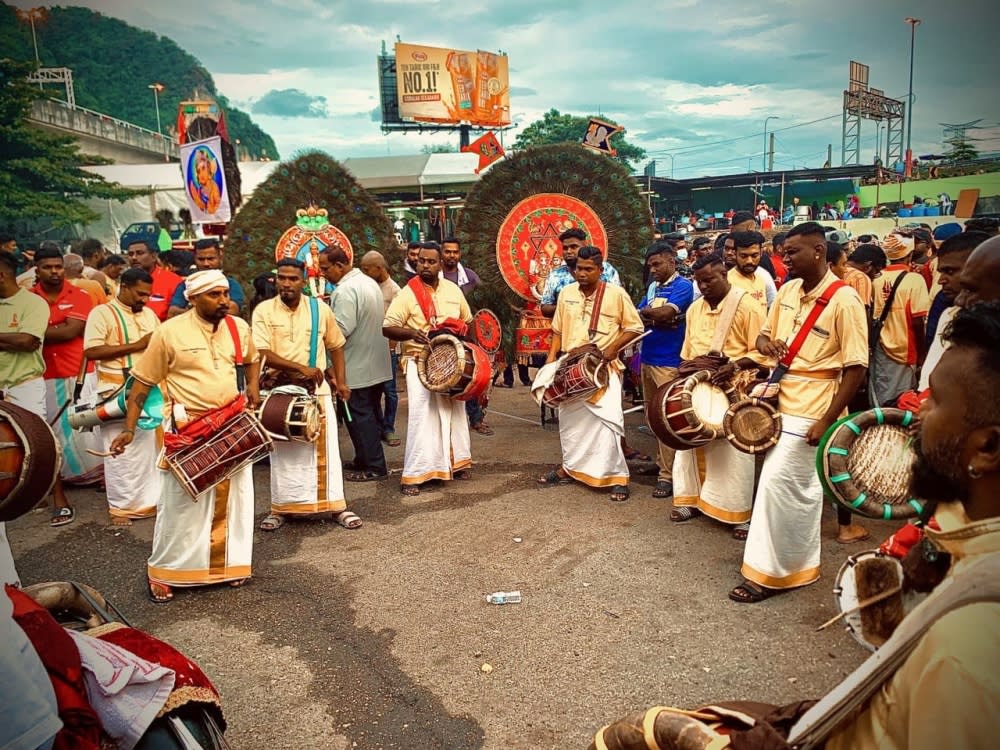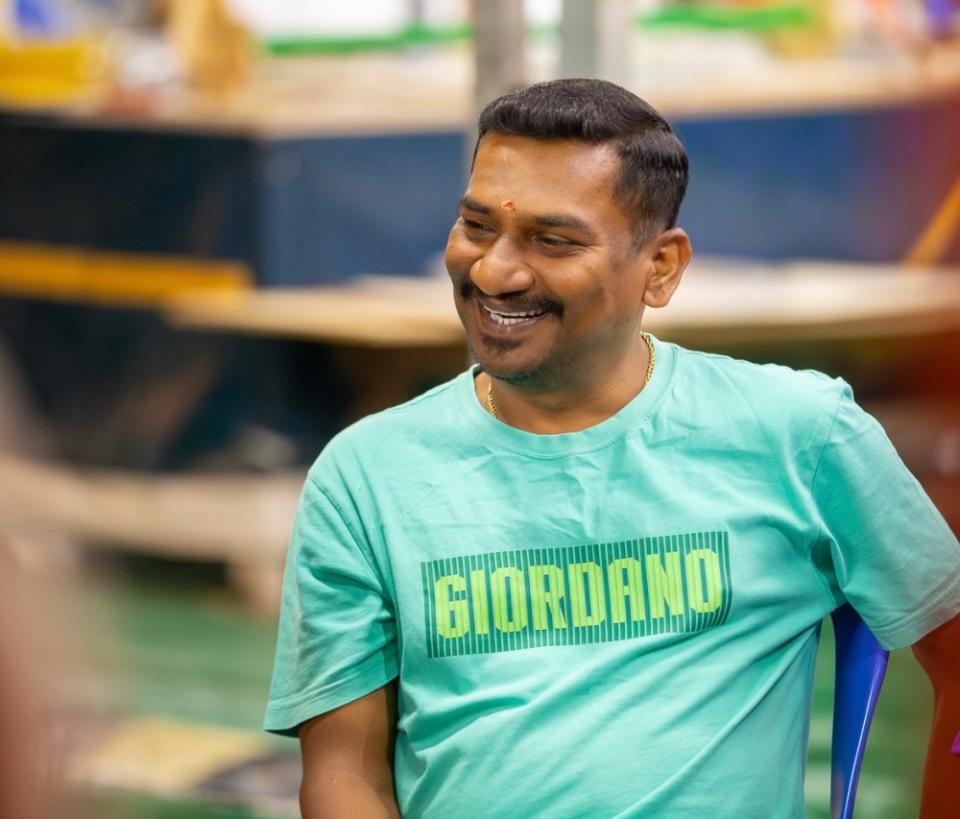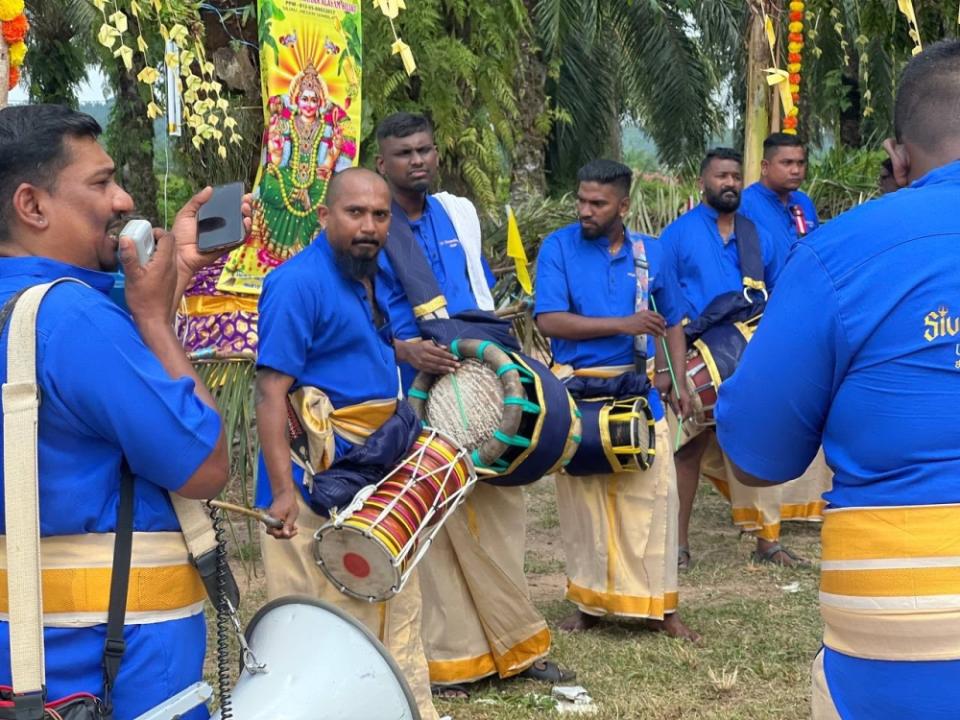Local 'urumee melam' team drumming up Thaipusam spirit for kavadi-bearers since 1999

KUALA LUMPUR, Jan 25 — During Thaipusam, thousands of people fill the streets to watch the kavadi aattam — a frenetic dance performed by kavadi-bearers — to fulfil their religious vows to Lord Murugan.
The kavadi-bearer gyrates as a group of drummers render devotional songs while fervently thumping the urumee — an hourglass-shaped double-headed drum — with long curved sticks.
This traditional folk music, known as urumee melam, comprises three important instruments:Uurumee, thavil (a barrel-shaped percussion instrument) and pambai (a pair of cylindrical drums).
Interestingly, Shoban Babu Munian, 44, a veteran urumee melam drummer said the folk music is played very differently in Malaysia compared to in Tamil Nadu, India.

Shoban co-founded the Siva Mathura Kaali Urumee Melam team with four friends in 1999. — Picture by Raymond Manuel
“Urumee drums originate from devatundumi, which is believed to be the music played by the gods for Lord Shiva, in Tamil Nadu.
“Over there, the urumee, thavil and pambai are played separately for different occasions. Only in Malaysia, all three instruments are played together as urumee melam.
“Another difference is that kavadi processions in Tamil Nadu only rely on the instrumental music produced from thavil and nadaswaram (a double-reed wind instrument).
“In Malaysia, we sing devotional songs that evoke powerful emotions while beating the drums to get the kavadi-bearers dancing,” he told Malay Mail, when met at the Sri Maha Kala Muneeswarar temple in Sentul recently.
Shoban developed an inclination for traditional Indian music since he started singing thevaram (Tamil devotional hymns) at the age of seven.
In 1999, he co-founded the Siva Mathura Kaali Urumee Melam team with his three friends, including the late Bathamanathan Ponnusamy, who mentored the team.

Since 2007, the team has been performing for an annual Goddess Kaliamman temple festival in Jakarta, Indonesia. — Picture courtesy of Siva Mathura Kaali Urumee Melam
“Few years ago, we participated in the Ponggu Tamil programme by Astro, which was held in Thanjavur city for 15 days.
“There, we learned about the various folk music instruments and we also went through training locally after that,” he said.
Shoban said urumee melam players are first trained to get the right thaalam (beats) using jalra (a pair of small clash cymbals) before they practise with the drums.
“They must get the tempo right with the jalra first because every urumee melam instrument operates on thaalam,” he said.
Shoban’s team also compose their own devotional songs for specific deities that their clients carry the kavadis for.
“Some devotees want a fast-paced and energetic song, while some ask for a slow-paced, melodious song.
“So, we usually prepare a few different lyrics for every composition,” he said, adding that his team has released five albums and two single tracks during previous Thaipusam festivals.
Shoban’s team receives bookings for urumee melam performances all-year-round, starting from Thaipusam, followed by Panguni Uthiram (in March), the Aadi month (mid-July to mid-August) and the Lord Ayyapan Mandala pooja (November-December).
This year, they will be flying down to perform in Singapore for Panguni Uthiram and in July, they will perform at a temple festival in Jakarta for one week, which they have done annually since 2007.
Shoban said while performing, the drummers are dressed in traditional dhoti and walk barefooted without any footwear.
“For us, this is an act of service. We express our devotion through urumee melam,” he said.


